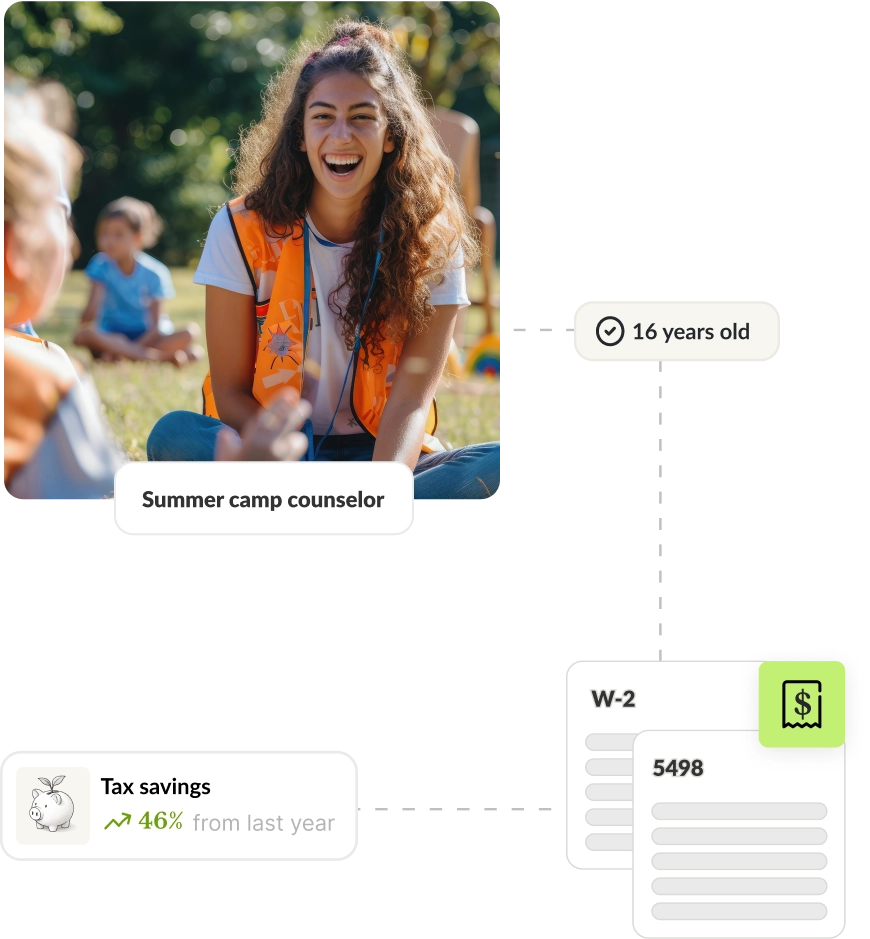2025 Utah State Tax Deadlines
Utah Individual income tax filing deadlines and extensions for 2025
If you are a resident or have been involved in business operations within Utah, you might be required to file Utah State taxes. Utah implemented a flat income tax rate of 4.55% for 2025, applying to all income levels while maintaining its reputation as a business-friendly State. This comprehensive guide outlines the key tax deadlines and considerations applicable to Utah in 2025.
Utah business tax deadlines for 2025
C Corporations' deadlines and requirements
C Corporations in Utah must file and pay Corporate Income Taxes by April 15, 2026.
Filing requirements include:
- Complete Form TC-20 (Utah Corporation Franchise or Income Tax Return)
- File online with Utah's Taxpayer Access Point (TAP)
- File by mail must be postmarked by the due date
- Payment must be made by April 15, 2026
Extension to file taxes in Utah for 2025
The Extension Deadline for Utah Corporate income tax returns is October 15, 2026. Utah automatically grants a six-month extension on filing Corporate income tax returns without requiring separate forms. This is an extension to FILE, not an extension to PAY—payment is still due April 15, 2026.
Pass-through entities
Utah S Corporations and Partnerships tax deadlines for 2025
S Corporations and Partnerships must file in Utah by April 15, 2026.
Required forms include:
- Form TC-20S (S Corporation Franchise & Income Tax)
- Form TC-65 (Utah Partnership/Limited Liability Partnership/Limited Liability Company Return)
Extension to file S Corporations and Partnerships taxes in Utah for 2025
The Extension Deadline for Utah S Corporations and Partnerships returns is September 15, 2026. Utah automatically grants a five-month extension on filing pass-through entity tax returns without requiring separate applications. This is an extension to FILE, not an extension to PAY—payment is still due April 15, 2026.
Utah Individual tax considerations for 2025
Filing requirements and income thresholds
Utah Individuals must file a State income tax return if their gross income meets certain thresholds, generally following federal requirements.
Estimated tax options for Utah 2025
Utah does not require quarterly estimated tax payments. However, taxpayers can prepay their taxes at any time before April 15, 2026. Use Form TC-546 (Individual Income Tax Prepayment Coupon) for the amount to pay for prepayment.
Who should consider prepayments:
- Taxpayers who expect to owe taxes at filing
- Self-employed Individuals
- Those with significant investment income
- Business owners with irregular income patterns
Individual tax deadline for Utah 2025
You must file and pay Individual Income Taxes in Utah by April 15, 2026. Utah accepts electronic filing through the Taxpayer Access Point, which significantly saves time and processing efforts.
Available forms include:
- Form TC-40 (Full-Time Residents, Part-Year Residents, and Non-Residents)
Extension to file taxes in Utah for 2025
The Extension Deadline is October 15, 2026, to file your Utah Individual Income tax return. Utah automatically grants a six-month extension on filing personal income taxes without requiring separate extension forms. This is an extension to FILE, not an extension to PAY—payment is still due April 15, 2026.
What Utah tax professionals need to know
Several key considerations make Utah's tax landscape unique for 2025. Utah's flat 4.55% income tax rate applies to all taxable income levels, simplifying calculations compared to the progressive tax rates found in other states. The State offers various tax credits and deductions that can provide significant savings opportunities.
Electronic filing requirements
Utah encourages electronic filing through its Taxpayer Access Point system. Benefits include:
- Faster processing times
- Immediate confirmation of receipt
- Direct deposit options for refunds
- Reduced errors compared to paper filing
Prepayment advantages
Unlike many states, Utah allows flexible prepayment timing rather than requiring quarterly estimated payments. This system provides advantages for:
- Taxpayers with seasonal income fluctuations
- Business owners planning cash flow
- Vehicle tax deduction planning strategies
Utah's unique tax features for 2025
Automatic extensions policy
Utah provides automatic extensions without requiring additional forms, streamlining the filing process for taxpayers who need additional time. This policy applies to both Corporate and Individual returns, though payment deadlines remain unchanged.
Flat tax benefits
Utah's flat tax structure offers several advantages, including simplified tax planning, predictable tax calculations, and reduced complexity for businesses operating across multiple jurisdictions.
Special provisions for farmers
If at least two-thirds of your gross income is derived from farming, you may pay estimated tax at any time on or before January 15, 2026. However, if farmers file their tax return on or before March 1, 2026, and pay the total tax at that time, they need not file an estimated tax.
Sources
Don't miss State tax deadlines – Join Instead
State tax deadlines are approaching fast. While you're scrambling to gather documents and figure out complex deductions, you could be missing thousands in potential savings.
Instead's AI-driven platform does the heavy lifting for you—automatically identifying tax strategies, monitoring your accounts for savings opportunities, and ensuring you claim every deduction to which you're entitled. No more guesswork, no more missed opportunities.
The material discussed on this page is meant for general illustration and/or informational purposes only and is not to be construed as investment, tax, or legal advice. You must exercise your own independent professional judgment, recognizing that advice should not be based on unreasonable factual or legal assumptions or unreasonably rely upon representations of the client or others. Further, any advice you provide in connection with tax return preparation must comply in full with the requirements of IRS Circular 230.
Please note that if any due date falls on a federal or state holiday or weekend, it may be adjusted to the next business day. Always verify current deadlines with the appropriate tax professional and authorities.
Looking for a different year?

























